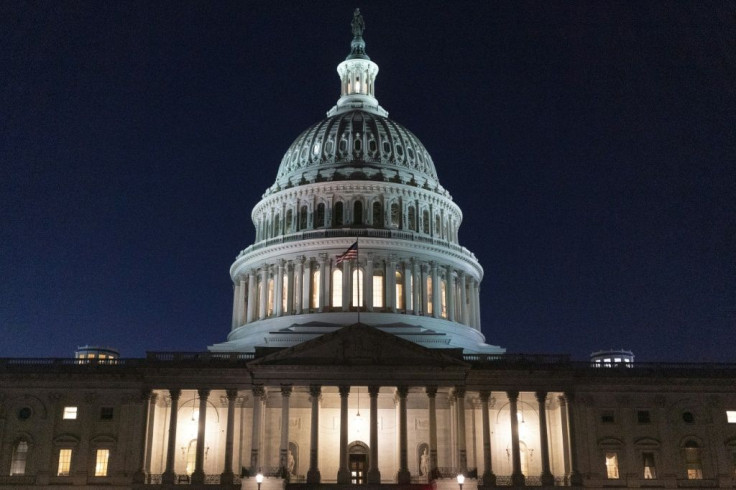US - Mexico Trade Deal Update: House Passes USMCA, Senate Awaits But Some Are Unhappy With Deal

KEY POINTS
- The trade pact passed by a 385-41 vote in the House,
- Sen. Pat Toomey was one of few Republicans to reject it
- Bill now goes to Senate which also must deal with Trump impeachment
The House of Representatives passed the United States-Mexico-Canada Agreement, also known as USMCA, a trilateral trade deal that President Donald Trump had highlighted as one of his top priorities.
The trade pact passed 385-41, with 38 Democrats voting against it.
The measure now goes to the Senate, which is expected to approve it sometime next year.
USMCA, which replaces the old North American Free Trade Agreement, received widespread bipartisan support from both Republicans and Democrats.
Treasury Secretary Steven Mnuchin told FOX Business Trump is “delivering on all his promises, and he’s building a great economy for American companies and American workers.”
The U.S. had $671.1 billion of goods and services trade with Mexico in 2018 and $718.5 billion of such trade with Canada that year. Hence, USMCA involves more than $1.3 trillion in trade value.
Mnuchin said he expects USMCA to boost U.S. gross domestic product by at least 0.5%. The International Trade Commission said the trade deal could create up to 588,900 jobs.
“This deal is so much better than the old deal,” Mnuchin said, referring to NAFTA.
Democrats, led by House Speaker Nancy Pelosi, had pushed for an upgraded enforcement of labor standards in the deal to prevent companies from relocating jobs to Mexico.
Pelosi said the deal took time to finish since “we weren’t going forward until we had the strongest possible enforcement.”
The AFL-CIO labor organization supported the deal on the strength of the labor enforcement feature.
USMCA also imposes strict rules about the origin of auto parts to block firms from importing cheaper parts from places like China. The deal stipulates a certain percentage of cars made under the treaty are worked on by employees making at least $16 per hour.
The House passed USMCA one day after it voted to impeach Trump.
“This vote today is a reminder that even while the House was working to hold the president accountable for his abuses of office, we were still working hard to deliver on our promises to the American people to focus on economic opportunity,” House Majority Leader Steny Hoyer, D-Md., said.
However, some parties are unhappy with the deal. The United Food and Commercial Workers International Union criticized the bill for failing to do enough to protect food workers from “unfair competition from foreign companies not playing by the same rules.”
Sen. Pat Toomey of Pennsylvania, one of the few Republicans to oppose USMCA, dismissed it as “the only trade pact ever meant to diminish trade.”
In an op-ed for the Wall Street Journal published Wednesday, Toomey said the deal “terminates free trade in cars and auto parts” and would “raise car prices, shrink North American auto exports and eventually reduce U.S. auto employment.”
Toomey also found fault with the deal’s 16-year expiration date.
“That will chill trade and investment by introducing considerable uncertainty about the future terms of trade,” he wrote.
Toomey objected to the deal's provisions dealing with the unionization of Mexican factory workers.
“Previous trade agreements left trading partners’ labor laws for them to decide,” he wrote. “But USMCA goes well beyond requiring labor-organizing laws. U.S. taxpayers will pay $45 million a year to enforce these Mexican laws."
White House economic adviser Larry Kudlow rejected Toomey’s complaints.
“I like the domestic-content increase to 75%,” Kudlow told Fox. “After we lost, what, 6 million manufacturing jobs, I don't see why we shouldn't protect American workers.”
While the Senate is expected to pass USMCA, the timeline is affected by Trump’s impeachment trial, which may or may not occur in January. In addition, Senate Majority Leader Mitch McConnell has said he disliked parts of USMCA.
© Copyright IBTimes 2025. All rights reserved.





















